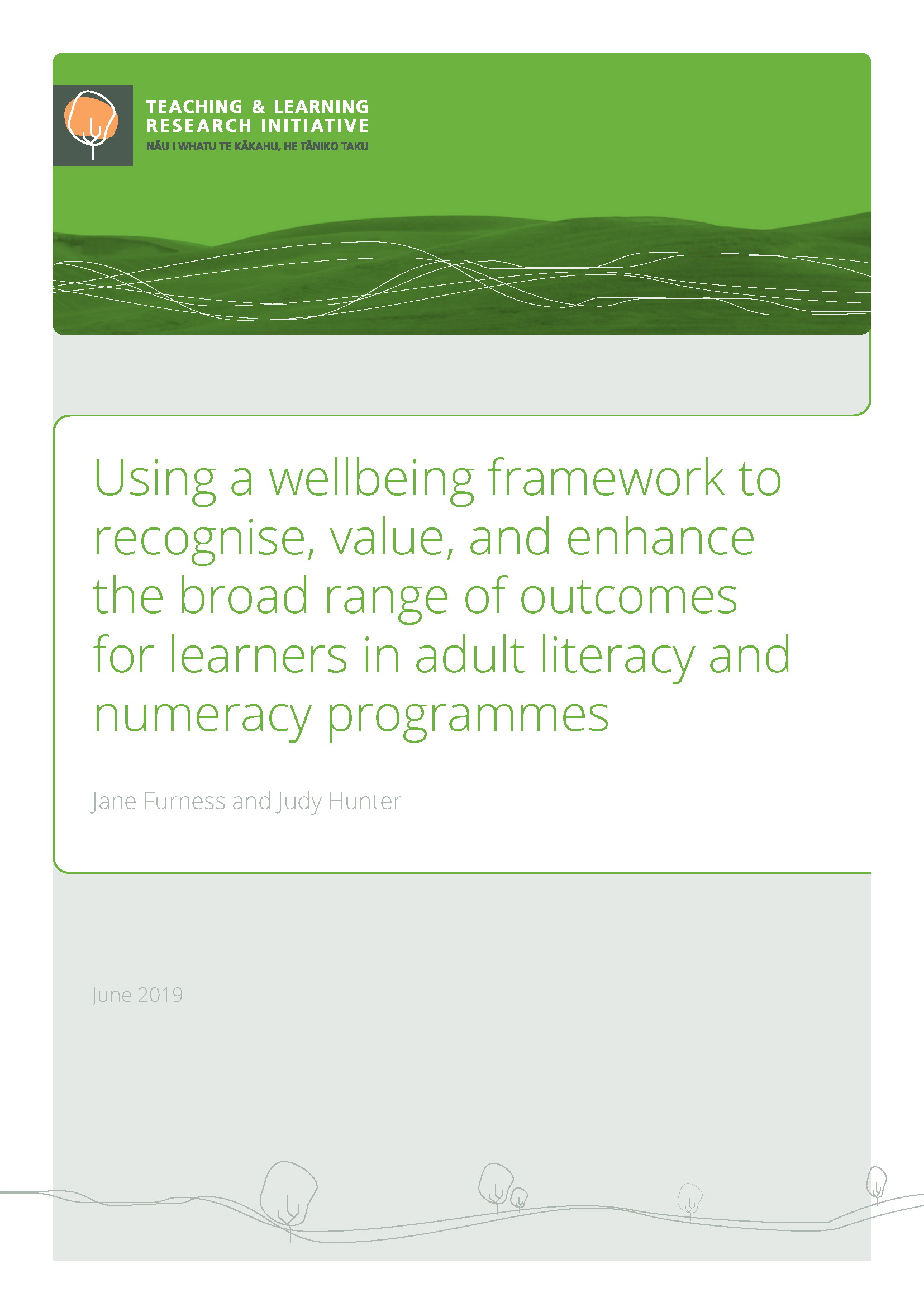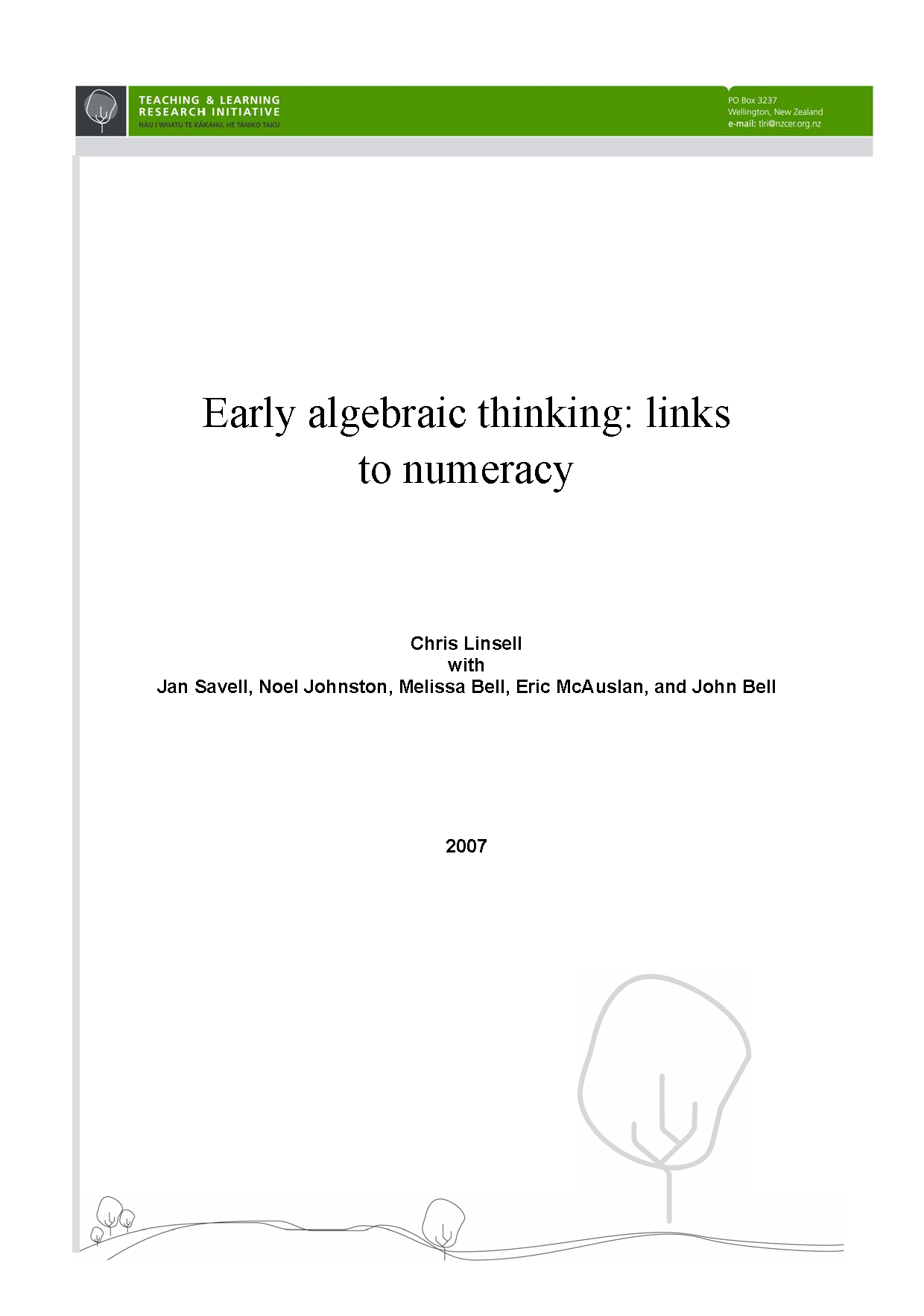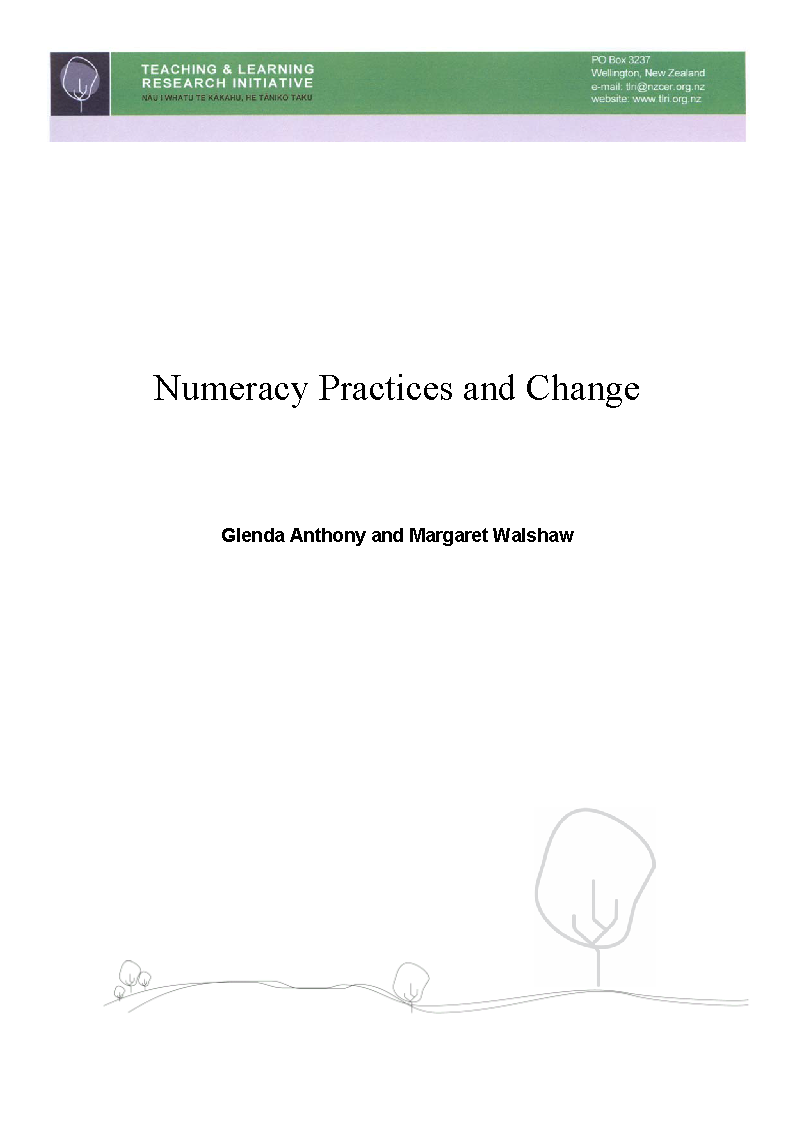
Using a wellbeing framework to recognise, value and enhance the broad range of outcomes for learners in adult literacy and numeracy programmes
Aotearoa New Zealand’s attention to adult literacy and numeracy (L+N) education arose from the results of the OECD / Statistics Canada International Literacy surveys begun in the mid-1990s, when, as a nation, we achieved unexpectedly low results for L+N proficiency. The Government responded with an adult L+N strategy (Ministry of Education, 2001) that spellt out initiatives in building professional capability for delivery, improving the quality of the system, and ensuring that larger numbers of learners could access L+N learning. Over the next 10 years, further measures were included, such as credentialising tutors, expanded funding for educational provision, a national literacy centre housed in the University of Waikato, a national set of



